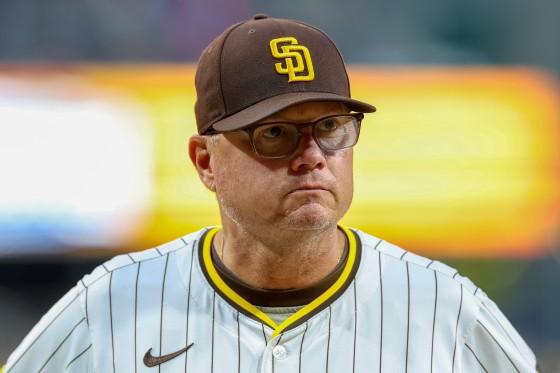In a surprising turn of events, San Diego Padres manager Mike Shildt has announced his retirement, citing the severe toll that the demands of the position have taken on his health. After a season filled with high expectations and intense scrutiny, Shildt’s decision marks a significant moment for the Padres organization, which faces the challenge of finding a successor who can navigate the pressures of Major League Baseball. With a career that includes notable achievements and a commitment to player development, Shildt’s departure sends ripples through the franchise and raises questions about the future direction of the team. This article will explore Shildt’s tenure with the Padres, the circumstances surrounding his resignation, and the implications for the organization moving forward.
Health Concerns Lead Mike Shildt to Step Down as Padres Manager
In a surprising turn of events, Mike Shildt has announced his retirement from his role as the manager of the San Diego Padres, citing significant health concerns that have arisen during his tenure. Shildt, who has had a notable career in baseball management, emphasized that the demands of the job took a “severe toll” on his physical and mental well-being. His decision reflects a growing recognition among athletes and coaches alike of the importance of prioritizing personal health amidst the pressures of professional sports.
Under Shildt’s leadership, the Padres experienced a mix of highs and lows, but his commitment to the team and its players remained unwavering. As he embarks on this next chapter in his life, he leaves behind a legacy that includes:
- Strategic Insights: Known for his analytical approach, Shildt contributed a wealth of knowledge to the team.
- Player Development: His dedication to nurturing young talent helped revitalize the Padres’ roster.
- Team Spirit: Shildt fostered a positive environment, encouraging camaraderie and teamwork.
While the Padres prepare to search for a new manager, many fans and analysts will reflect on Shildt’s impactful journey with the franchise. His departure serves as a reminder of the profound responsibilities that come with leadership roles in sports and the vital need for individuals to take care of their health first.
- Advertisement -
Impact of High-Pressure Coaching Jobs on Athletic Performance
The demanding nature of a high-pressure coaching role in professional sports can significantly influence not only the performance of the athletes but also the well-being of the coaches themselves. Managers like Mike Shildt often face relentless expectations to produce results, which can manifest through intense scrutiny from both the media and fan bases. These pressures frequently lead to an environment where success is prioritized over health, causing many coaches to push themselves beyond manageable limits. This exhaustive lifestyle can contribute to increased stress levels, burnout, and even health crises that echo through the coaching staff and onto the players.
Recent studies have correlated the mental and physical toll of high-stakes coaching with fluctuations in team performance metrics. Coaches experiencing severe stress may inadvertently impact their team’s dynamics, leading to:
- Decreased motivation: Athletes may sense their coach’s struggle, affecting their enthusiasm and drive.
- Heightened anxiety: Players can mirror the stress of their coach, resulting in performance anxiety during critical games.
- Impaired communication: A coach preoccupied with personal health issues might struggle to maintain effective communication with the team.
Ultimately, the cycle of pressure affects not just individual health outcomes but can result in subpar athletic performances that fail to reflect the true potential of the team. Addressing the mental health of coaches is paramount, as a well-supported coaching staff not only elevates their personal well-being but also fosters an environment conducive to athletic excellence.
Recommendations for Sustainable Work-Life Balance in Professional Sports
In light of the recent retirement of Mike Shildt, the conversation around maintaining mental and physical wellbeing in the high-pressure environment of professional sports has gained renewed urgency. To foster a healthier work-life balance, teams and organizations should consider implementing several effective strategies that prioritize the wellbeing of their staff and players. These include:
- Advertisement -
- Flexible Scheduling: Allow coaches and players to have more control over their time, enabling them to balance training, travel, and personal commitments.
- Mental Health Resources: Provide access to counseling and mental health training programs designed specifically for athletes and coaching staff to manage stress effectively.
- Mandatory Rest Periods: Establish guidelines that ensure adequate downtime between games and training sessions to prevent burnout.
- Nutrition and Wellness Programs: Implement comprehensive wellness programs that cover nutrition, fitness, and recovery strategies tailored to individual needs.
To quantify the toll that such intense careers can take, consider the following statistics related to common health issues faced by professionals in coaching positions:
| Health Issue | Percentage Affected |
|---|---|
| Stress-related Disorders | 60% |
| Burnout Symptoms | 45% |
| Depression | 30% |
| Anxiety Disorders | 50% |
By addressing the issue of work-life balance through these approaches, sports organizations can create a healthier environment that not only enhances performance but also prioritizes the overall well-being of those who dedicate their lives to the game.
Concluding Remarks
In conclusion, Mike Shildt’s retirement from his role as manager of the San Diego Padres marks a significant turning point not only for the team but also highlights the often-overlooked impact of professional sports on individuals’ well-being. After a season of high expectations and enduring pressure, Shildt’s decision to step away underscores the importance of prioritizing health over the demands of the job. As the Padres move forward in search of a new leader, Shildt’s contributions and resilience will be remembered as they navigate the next chapter in their pursuit of success. Fans and players alike wish him a well-deserved rest and hope for a future where balance and health are integral components of the game.


